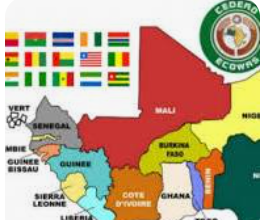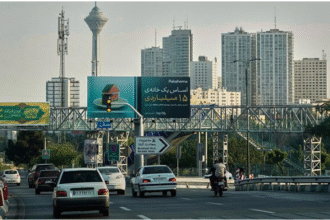By Emily Sims
Washington D.C. – The White House announced a sweeping new travel ban on Wednesday, restricting entry to the United States for citizens of 12 nations, with partial restrictions imposed on an additional seven. The move, reminiscent of President Trump’s initial travel ban during his first administration, targets countries primarily with strained relations with the U.S., facing internal instability, or deemed to pose security risks.
In a video statement released Wednesday, Trump asserted that new countries could be added to the list as “threats emerge around the world.” He further stated on Thursday, “Frankly, we want to keep bad people out of our country. The Biden administration allowed some horrendous people, and we’re getting them out one by one, we’re not stopping until we get them out.”
According to the administration, a significant factor in the ban was the high rate of visa overstays among nationals from the affected countries. This issue has gained renewed attention following the recent attack in Boulder, Colorado, where the suspect, an Egyptian national whose work authorization had expired, was charged with attempted murder.
The Targeted Nations
The 12 countries facing full travel restrictions are:
- Chad
- Sudan
- Libya
- Eritrea
- Republic of Congo
- Somalia
- Equatorial Guinea
- Afghanistan
- Iran
- Yemen
- Myanmar
- Cuba
The seven countries subject to partial restrictions are:
- Burundi
- Laos
- Sierra Leone
- Togo
- Turkmenistan
- Venezuela
- Cuba
The White House cited various reasons for including these nations. Somalia, for example, was labeled a “terrorist safe haven” with a government lacking control of its territory. Relations with Sudan have deteriorated, with the U.S. threatening sanctions over the government’s alleged use of chemical weapons. Similarly, the administration has criticized Eritrea for alleged war crimes in Ethiopia and Libya for crimes against humanity.
Chad’s high visa overstay rate, with approximately half of those admitted to the U.S. overstaying their visas in 2023, was cited as “unacceptable and indicative of a blatant disregard for U.S. immigration laws.” In response, the President of Chad, Mahamat Idriss Deby Itno, announced that his government would suspend visas for U.S. citizens in accordance with the “principles of reciprocity.”
Afghanistan and Yemen, both with ongoing conflicts and U.S. involvement, were also included on the list. Myanmar, facing civil war and a brutal military junta, and Laos, with which the U.S. has a complex history, round out the countries facing restrictions.
Impact and Exceptions
The travel ban does not affect existing visa or green card holders and includes exceptions for certain visa categories and individuals whose entry is deemed to serve U.S. interests. The impact will vary widely, with some nations receiving only a few hundred nonimmigrant visas annually, while others, like Venezuela, have seen hundreds of thousands of their citizens enter the U.S. in the past decade.
Venezuelan Foreign Minister Yván Gil Pinto condemned the ban as an “operation of hate and stigmatization.” More than 55,000 Venezuelan nationals received nonimmigrant visas in 2023, with nearly 800,000 granted such visas in the preceding decade, indicating a potentially significant impact.
African Union Response
The African Union Commission expressed “concern” about the impact of the bans “on people-to-people ties, educational exchange, commercial engagement, and the broader diplomatic relations that have been carefully nurtured over decades.” The organization urged the U.S. to exercise its right to protect its borders in a “balanced, evidence-based, and reflective of the long-standing partnership between the United States and Africa.”
Egypt’s Exemption
Notably, Egypt was spared inclusion on the list despite the nationality of the suspect in the Boulder, Colorado attack. Trump stated that “Egypt has been a country that we deal with very closely. They have things under control. The countries that we have don’t have things under control.” Egypt has long been a key U.S. partner in the Middle East and a significant recipient of U.S. military aid.









